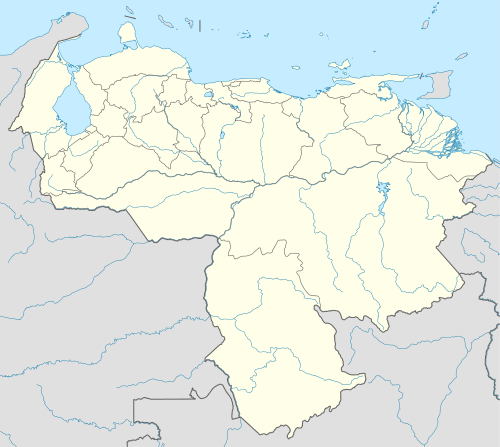Is Venezuela Sending Violent Criminals to the United States?
Certain GOP officials — including former President Donald Trump — have alleged that that the socialist government of Venezuelan President Nicolas Maduro is using the Biden administration’s lenient entry policies for nationals of that country to send criminals and other bad actors to the United States. The claim has been rejected by so-called fact-checkers, but Fidel Castro did just that during the 1980 Mariel boatlift, and there are some pretty strong ties between Havana and Caracas. So the idea may not be as specious as some have claimed — and a recent high-profile murder may provide evidence.
Hugo Chavez and Fidel Castro. The Venezuelan economy rode a rollercoaster of ups and downs for decades after the ascension of President Romulo Betancourt — the first freely elected leader following decades of dictatorship — in 1958. That cycle was largely tied to the value of a key Venezuelan export — oil.
In February 1989, then-President Carlos Andres Perez attempted to impose free-market reforms in the country, modeled along the lines of principles enshrined in the pro-capitalist Washington Consensus. Those reforms triggered riots, in which anywhere between 275 and 3,000 Venezuelans perished.
This upheaval provided an opportunity for Hugo Chavez, a Venezuelan military officer with a decidedly revolutionary bent, to mount an attempted coup in February 1992 (which landed him in jail), followed by another in November of that year, which was turned back by troops loyal to the government.
Chavez was released in 1994 and used his fame to run for the presidency on a populist platform, winning with 56 percent of the vote in 1998.
He took office in 1999 and formed what the Wall Street Journal described as “an exceptionally close bond with Fidel Castro, who has served as the Venezuelan’s mentor, medical adviser and father figure”.
It was a symbiotic relationship, to be sure, as Caracas propped up a Castro regime that had hit hard times following the demise of its erstwhile patron, the Soviet Union, with a cash infusion of around $10 billion annually.
Chavez’s political philosophy has since been known as “chavismo”, marked by lavish social services funded primarily by the oil industry and “PDVSA”, the state-owned oil company. Not surprisingly, after Chavez fired the management of the company following a strike in 2002, it became corrupt and inefficient, all of which eventually helped make the country an economic basket case.
Cuba and Venezuela have become even more politically aligned since. Chavez died in a Havana hospital in March 2013, and his hand-picked successor, Nicholas Maduro, has continued both chavismo and his predecessor’s close relationship with Havana.
Notably, Luis Almagro, secretary general of the Organization of American States (OAS), used an OAS Conference on the Human Rights Situation in Cuba in Washington in December 2018 to complain that:
This year in Venezuela, the presence of Cubans was recorded in the torture of its people. It is estimated that there are some 46,000 Cubans in Venezuela, an occupation force that teaches how to torture and repress, that performs intelligence, civil identification, and migration services. [Emphasis added.]
The Mariel Boatlift. Hold on to that highlighted quote while I step back a bit to 1980 and the “Mariel boatlift”, a massive maritime departure of 125,000 Cuban nationals from the port of Mariel to south Florida in 1980 (when now-President Biden had already been in the Senate for more than seven years).
As my colleague Mark Krikorian has explained, it began after five Cubans successfully broke into the Peruvian embassy compound in Havana that April. “When Peru refused to return them, Castro pulled out his guards, and in short order 10,000 people swarmed into the compound.”
Up to that point, Cuba had tightly restricted emigration from the island nation, but on May 1, 1980, Castro assessed the facts on the ground and announced that, “Those who have no revolutionary genes, those who have no revolutionary blood … we do not want them, we do not need them” — basically giving the go-ahead to anyone (almost) who wanted to leave.
Four days later, President Carter promised to accept the new arrivals with “open hearts and open arms”, but he likely got more than he bargained for as up to 1,000 new migrants started showing up daily.
Not all were political oppositionists. As the Washington Post reported in July 1983:
Most were true refugees, many had families here, and the great majority has settled into American communities without mishap. But the Cuban dictator played a cruel joke. He opened his jails and mental hospitals and put their inmates on the boats too.
This country has since provided care for the mentally ill among them. The 22,000 arrivals who freely admitted that they were convicts were kept apart and have been treated separately. Each case has been reviewed individually by Justice Department lawyers, and hearings were afforded at which the Cubans could be represented by lawyers and present witnesses. Gradually, those thought to be less dangerous, including not only political prisoners but also some persons who had committed serious felonies, were released.
TPS, CHNV, and CBP One. Which brings me back to Venezuela. An estimated 7.7 million nationals of that country have fled since chavismo and its attendant economic downturns and political repression have taken hold, but up until the Biden administration, few of them ended up in the United States.
According to CBP records, its immigration officers encountered just 2,787 Venezuelan nationals at the Southwest border in all of FY 2020, and 2,274 others between October 2021 (the first month of FY 2022) and February 2022. That’s 5,061 in total.
Those figures are consistent with other pre-Biden encounter totals. In FY 2019, Border Patrol agents apprehended just over 2,200 Venezuelans at the Southwest border, while in FY 2018, agents caught just 62 Venezuelans entering illegally there.
On March 8, 2021, however, the Biden administration announced that it would designate Venezuela for Temporary Protected Status (TPS), in essence allowing every national of that country present in the United States as of that date to remain indefinitely, with employment authorization.
Likely not coincidentally, Border Patrol apprehended 43 percent more Venezuelans at the Southwest border in May 2021 (7,386) — two months after the designation — than agents had apprehended there in the entire period between October 2017 and February 2021 (5,164).
Since then? Between March 2021 and October of that year, CBP encountered 46,404 illegal Venezuelan migrants, more than 187,700 in FY 2022, and 168,000-plus in just the first 10 months of FY 2023.
DHS Secretary Alejandro Mayorkas responded not by attempting to deport any of those aliens, but by redesignating Venezuela for TPS on September 20, 2023, and extending that status to include an estimated 714,700 nationals of that country who had entered before the completely arbitrary date of July 31, 2023.
That’s not all the Biden administration did.
To slow the illegal entry of Venezuelan nationals at the Southwest border, DHS created a class-based parole program to allow up to 24,000 Venezuelans to enter the United States and receive work permits in October 2022, a program DHS expanded in January 2023 to allow up to 30,000 nationals of that country as well as Cuba, Haiti, and Nicaragua to enter on parole per month, known as “CHNV parole”.
As of the end of January 2024, more than 86,000 Venezuelans had entered on CHNV parole alone, but it does not appear to have slowed illegal entries much. Between October 2022 and this January, CBP has encountered more than 410,000 Venezuelans at the Southwest border, 304,000 apprehended after entering illegally and nearly 106,000 others stopped at the ports.
Most of the 95,622 Venezuelan nationals who were encountered at the Southwest border ports of entry beginning in February 2023 likely took advantage of yet another Biden innovation announced that January, which allows would be-migrants to preschedule their illegal entries at the ports using the CBP One app, and which I have deemed the “CBP One app interview scheme”.
Why do I think that those Venezuelans used the app at the ports? Because it all of FY 2021 and FY 2022 combined, just 1,356 nationals of that country were deemed inadmissible at the Southwest border ports, or roughly a third as many as were encountered there in the month of February 2023 alone.
It’s unclear what CBP does to screen aliens who take advantage of the CBP One app interview scheme before releasing them, but it likely doesn’t do much because congressional disclosures have revealed that 95.8 percent of those who used the app and appeared for interviews were subsequently paroled in.
As for CHNV parole, DHS claims that any foreign national who seeks to enter under that program must first “undergo and clear robust security vetting”. Any such screening, of course, is only as good as the department’s ability to access and rely on criminal records in the country from which those aliens hail.
If Castro apostle Nicolas Maduro wanted to rid Venezuela of criminals, could he take a page from the Mariel playbook? And if so, would his government deliberately withhold records on the criminal histories of certain applicants, especially if Havana is calling the shots in Caracas as the OAS secretary general has suggested?
“Venezuela’s Violent Deaths Fall to 22-Year Low on Migration”. Well, crime is definitely falling in the country since the surge of Venezuelan entrants to the United States began.
On December 28, 2023, Bloomberg reported: “Venezuela’s rate of violent deaths dropped to its lowest level in more than two decades following years of massive migration as both criminals and victims fled the nation’s economic crisis.”
That article quotes Roberto Briceño León, director of the Observatory Venezuelan Violence, which found there were 26.8 violent deaths in the country per 100,000 in 2023, a marked decline from the 35.3 violent deaths the previous year, as “criminals and gangs have emigrated due to the lack of opportunities to commit crimes”.
Tren de Aragua (TdA) and the Ibarra Brothers. And there are definitely indications that at least some Venezuelan criminals have come to the United States.
The arrest of Venezuelan migrant Jose Ibarra as a suspect in the brutal murder of 22-year-old nursing student Laken Riley in Athens, Ga., has spurred national outrage, and it’s also brought some unusual facts to the surface.
In the course of the search for Ibarra, police initially arrested his brother, Diego Ibarra, who has subsequently been charged with offering the investigating officer a fake green card to establish his identity.
A memorandum offered by DOJ to keep Diego Ibarra in federal custody pending trial reveals that he has tattoos and has sported attire associated with Tren de Aragua (TdA), a Venezuelan gang that, according to the department, “has been involved in recent violent confrontations with law enforcement and civilian victims in New York and elsewhere throughout the United States”.
According to the New York Post back in February, a series of robberies in New York City has been linked to the gang, which the paper claims “is sending its members to New York as part of the migrant wave — and using its sprawling criminal empire to launder the proceeds of the crimes” by having them come to the Southwest border and claim asylum. The Post also cites to alleged TdA activity in Miami and a presence in Chicago.
Plainly DHS is concerned about Venezuelan criminals; CBP has warned its agents “to be on the lookout for members of” TdA, with the agency explaining that the gang “is trying to establish itself in the U.S., where police are already linking it to organized crime”.
“Fact-Checking Claim About Venezuela Sending Prisoners to the US Southern Border”. In September 2022, Rep. Troy Nehls (R-Texas) tweeted out a letter that he and 13 other members had sent to DHS Secretary Alejandro Mayorkas seeking information about an alleged “intelligence report” finding that the Venezuelan government was releasing criminals and sending them to this country:
🚨 I sent a letter with 13 of my @HouseGOP colleagues to @SecMayorkas demanding answers about Venezuela releasing violent prisoners early and pushing them to join caravans heading towards our southern border.
We need transparency and accountability from this administration. pic.twitter.com/zqx4yCtEP6
— Congressman Troy E. Nehls (@RepTroyNehls) September 22, 2022
PolitiFact checked out the claims in that tweet and concluded it “was unable to find any evidence of the report’s existence or any proof that Venezuela is taking those actions”. Among the points the outlet relied on was the following:
CBP publishes data on how many people with criminal convictions or who are wanted by law enforcement have encounters with immigration officials at U.S. borders. Criminals encountered are not let into the country, “absent extenuating circumstances,” according to the agency.
That links to a CBP web page captioned “CBP Enforcement Statistics”, which includes a subheader, “U.S. Border Patrol Nationwide Apprehensions by Gang Affiliation”. There are 50 specific gangs listed, but TdA is not among them. Maybe next month.
Is Venezuela deliberately sending its criminals to the United States? Crime has definitely dropped there since nationals of that country started flooding into the United States, and Caracas is closely aligned with a Cuban government that did just that 44 years ago, so it could happen. That doesn’t mean it has, but if DHS knows it’s happening, it should end CHNV.
By the way, that 1983 Washington Post piece on Mariel criminals ended with this:
The matter could be settled quickly if these men could be deported, but Cuba refuses to take them back; the United States has tried to initiate negotiations on this subject, in vain, four times. As difficult as that may be, the pressure must be kept on the Castro regime to take them back. They belong in Cuban jails, not in American jails. Certainly they do not belong on American streets. Meanwhile, the government is under no obligation to accord these particular illegal aliens rights and privileges not available to other aliens or even to American citizens.
Can you imagine the paper printing anything like that about TdA members and other Venezuelans today? Me neither.





